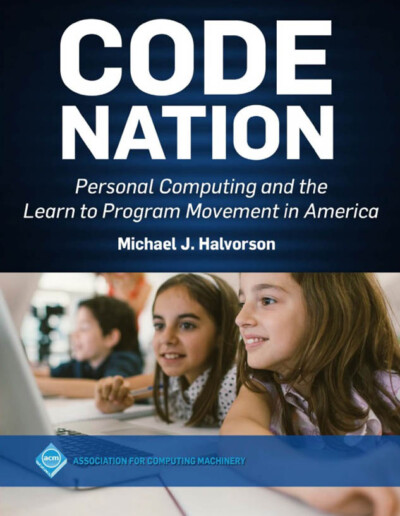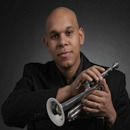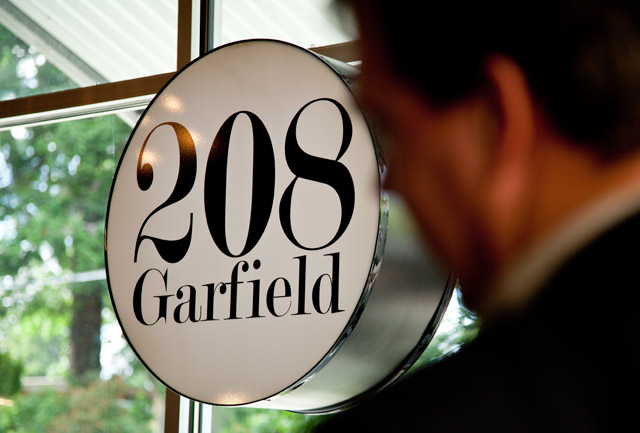Page 15 • (1,906 results in 0.02 seconds)
-

Consultant | Writing Center | Mia is majoring in English and Chinese Studies and minoring in Publishing and Printing Arts.
Mia Ruhoff Consultant She/Her Biography Biography Mia is majoring in English and Chinese Studies and minoring in Publishing and Printing Arts. Her hobby is doing board games.
-

Can learning to code be described as a social movement in American history? PLU Professor Michael Halvorson thinks so. His reflections on the subject were recorded as part of PLU’s Homecoming and Family Week, which presented several lectures by the PLU faculty for the Lute…
America, including early research in government labs and universities; popular movements that emphasized coding; hobbyists and early personal computing; and the contributions of software companies such as Microsoft Corporation, where Halvorson worked from 1985 to 1993. Code Nation explains how our modern world of computing came to be, and the role of computer programmers (or software makers) in the process. Halvorson’s unique focus is on the social dimensions of coding in America: “Computer
-

Lecturer - Trumpet | School of Music, Theatre & Dance | castroea@plu.edu | 253-535-7602 | Dr.
at LaGuardia High School where he was exposed to various forms of classical and jazz music. Ed later studied trumpet at Yale, the Manhattan School of Music, and the University of Washington. As a fan of modern and early classical music, Castro has positioned himself between genres with additional deep interests in jazz and popular music, where these myriad styles influence his compositions. His trumpet instructors include Chris Gekker, Trumpet Professor University of Maryland, Former Member of
Office HoursMon - Fri: - -

Lecturer - Trumpet | Music | castroea@plu.edu | 253-535-7602 | Dr.
at LaGuardia High School where he was exposed to various forms of classical and jazz music. Ed later studied trumpet at Yale, the Manhattan School of Music, and the University of Washington. As a fan of modern and early classical music, Castro has positioned himself between genres with additional deep interests in jazz and popular music, where these myriad styles influence his compositions. His trumpet instructors include Chris Gekker, Trumpet Professor University of Maryland, Former Member of
Office HoursMon - Fri: - -

Professor of Music - Voice; Coordinator of Vocal Studies | School of Music, Theatre & Dance | brownja@plu.edu | 253-535-7614 | James Brown enjoys an eclectic career of singing, teaching, stage direction and conducting.
. Brown’s students have gone on to study at University of Arizona, Indiana University, The Juilliard School, University of Michigan, Oberlin Conservatory and Yale University and have performed on stages from the Metropolitan Opera in New York to Opernhaus Zürich. As Director of Opera at Pacific Lutheran University in Tacoma, WA, Brown follows a three-year cycle of repertoire with his students that includes the early baroque, standard repertoire, and modern repertoire. The director received a production
Office HoursMon - Fri: - -

Professor of Music - Voice; Coordinator of Vocal Studies | Music | brownja@plu.edu | 253-535-7614 | James Brown enjoys an eclectic career of singing, teaching, stage direction and conducting.
. Brown’s students have gone on to study at University of Arizona, Indiana University, The Juilliard School, University of Michigan, Oberlin Conservatory and Yale University and have performed on stages from the Metropolitan Opera in New York to Opernhaus Zürich. As Director of Opera at Pacific Lutheran University in Tacoma, WA, Brown follows a three-year cycle of repertoire with his students that includes the early baroque, standard repertoire, and modern repertoire. The director received a production
Office HoursMon - Fri: - -

Mycal Ford ’12 has spent the year teaching in Taiwan on a Student Fulbright Fellowship. Mycal Ford ’12: A journey of discovery leads this Lute to China and Taiwan By Barbara Clements University Communications Mycal Ford eyed the skewer of fried scorpions he held at…
travelled to Lhasa, Tibet, where he watched devout Buddhists make a pilgrimage to a city and prostrate themselves in a circuit around the temples with prayer wheels, especially at the Jokhang Temple, one of the holiest sites in Tibet to Buddhists. Prayer flags would snap against the wind, along with the Chinese national flag. Centuries old streets, would intersect with more modern boulevards. Smells of spices, dust and exhaust fumes would compete for dominance. “I was just transfixed by the place,” he
-

The French-American Foundation has announced that PLU Professor of French Rebecca Wilkin is one of the winners of the 2024 Translation Prize. Wilkin and her co-editor and translator Angela Hunter, an English professor at the University of Arkansas at Little Rock, received the nonfiction prize…
English professor at the University of Arkansas at Little Rock, received the nonfiction prize for their translation of the eighteenth-century text “Work on Women” by Louise Dupin (also known as Madame Dupin). Wilkin teaches in multiple academic programs at PLU, including French & Francophone Studies, Global Studies, the International Honors program, and the First Year Experience Program. She is the author of Women, Imagination, and the Search for Truth in Early Modern France (Ashgate 2008) and of many
-

Garfield Street has a ton of eating options, like 208 Garfield, with fun for the palate like small plates and big treats. (Photos by John Froschauer) From late-night snack to early-morning breakfasts, you’ll find places a plenty to eat at PLU By Barbara Clements You’ve…
August 10, 2011 Garfield Street has a ton of eating options, like 208 Garfield, with fun for the palate like small plates and big treats. (Photos by John Froschauer) From late-night snack to early-morning breakfasts, you’ll find places a plenty to eat at PLU By Barbara Clements You’ve decided it’s time for dinner, or a late night study break. But where, exactly, can you find a meal or some snacks? Pretty much at any time, there’s food to be found around PLU. For you early morning risers of the
-
After millenniums of sex and centuries of poetry, the love poem as understood by Shakespeare and Donne, and by Oxford undergraduates – the true-life confessions of the poet in love, immortalizing
social order. As stability returned in the Middle Ages and then growth in the Renaissance, this memory of Rome became the basis for education: the ideal citizen mastered what the old empire had bequeathed. In fact, the first universities based their curricula around the trivium (grammar, logic, rhetoric) and the quadrivium (arithmetic, geometry, music, astronomy) as outlined by Plato and Cicero. The Early Modern, or Neo-Classical, period adopted Classical models even more closely, but with a
Do you have any feedback for us? If so, feel free to use our Feedback Form.


